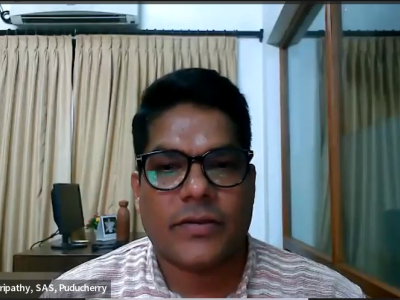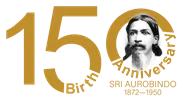Scientific Heritage and Knowledge System of India
Location: Sri Aurobindo Society, Puducherry
Institute: AuroBharati
Let noble thoughts come to us from every side. (Rigveda 1-89-1)
“she has been creating abundantly and incessantly, lavishly, with an inexhaustible manysidedness, republics and kingdoms and empires, philosophies and cosmogonies and sciences and creeds and arts and poems and all kinds of monuments, palaces and temples and public works, communities and societies and religious orders, laws and codes and rituals, physical sciences, psychic sciences, systems of Yoga, systems of politics and administration, arts spiritual, arts worldly, trades, industries, fine crafts,—the list is endless and in each item there is almost a plethora of activity.” – Sri Aurobindo
 AuroBharati, Sri Aurobindo Society launched a special program ‘Scientific Heritage and Knowledge Systems of India” on 6th July, 2024. The inaugural talk was delivered by Dr Kishor Kumar Tripathy, Member Secretary, AuroBharati, Sri Aurobindo Society, Puducherry. ‘Scientific Heritage and the Knowledge System of India’- an initiative to conduct interdisciplinary study and research-based activities to preserve the ancient and contemporary rich Indian knowledge systems in the light of Sri Aurobindo.
AuroBharati, Sri Aurobindo Society launched a special program ‘Scientific Heritage and Knowledge Systems of India” on 6th July, 2024. The inaugural talk was delivered by Dr Kishor Kumar Tripathy, Member Secretary, AuroBharati, Sri Aurobindo Society, Puducherry. ‘Scientific Heritage and the Knowledge System of India’- an initiative to conduct interdisciplinary study and research-based activities to preserve the ancient and contemporary rich Indian knowledge systems in the light of Sri Aurobindo.
Speaking on the occasion, Dr Tripathy said about the vision of Sri Aurobindo on the cultural and scientific heritage of India. Ancient Indians had a profound knowledge on different aspects and science in Ancient India is a vast and significant topic that encompasses a rich history of discoveries, advancements, and contributions across various fields. The scientific achievements of ancient India laid the foundation for numerous modern scientific principles and practices.

Jaimini, Patanjali, Sushruta, Valmiki, Vyasa, Kashyapa and many others, who extensively contributed for the discovery of many scientific knowledge.
The majority of the research and discoveries made in ancient India are recorded in Sanskrit manuscripts, which were carefully maintained and transmitted orally from generation to generation. The scientific achievements and wisdom of ancient India may now be accessed and appreciated by the worldwide population thanks to the translation and publication of several ancient writings.

The lecture was continued with significant discussions focussing on preservation of Indian Knowledge Systems, Research and innovation policy for development, emphasis on Swadesi system for sustainability, development of villages through the indigenous ideas and moreover to meet with the challenges of the Global education system.



